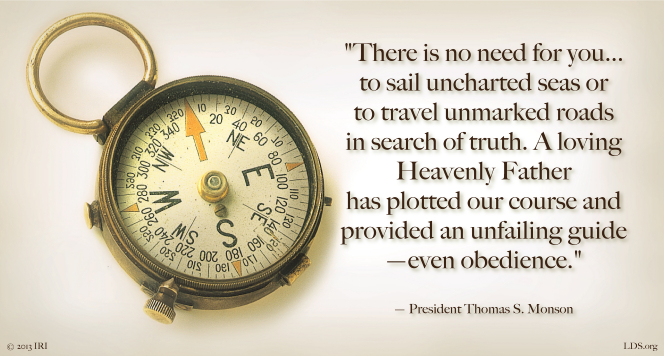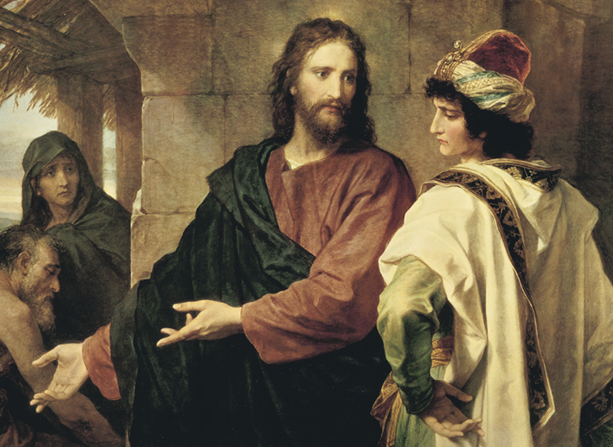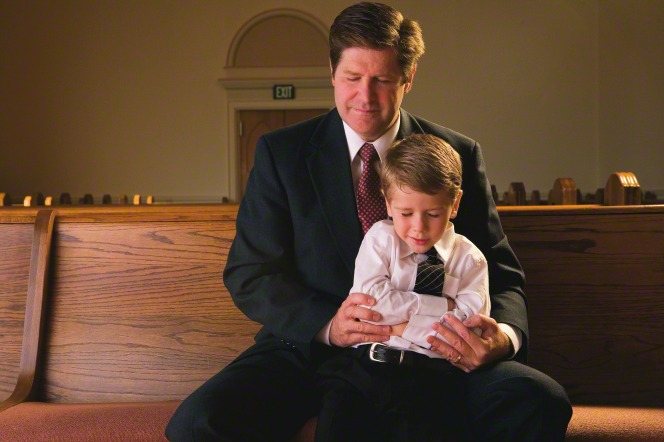 |
| Source |
Commandments
Examples of commandments:
- Live the Law of Chastity- Sexual purity in thought, word and action. Chastity includes strict abstinence from sexual relations before marriage and complete fidelity and loyalty to one's spouse after marriage.
- Obey the Word of Wisdom- Law of health. Harmful substances, including alcohol, tobacco, tea, coffee, and illegal drugs, should not be used.
- Pay Tithing- We give one tenth of our increase, which is understood to mean income, to the Lord's church.
- Keep the Sabbath Day Holy- Attend church, serve others, and strengthen family each Sunday. Avoid spending money or participating in commercial or sporting activities.
- Be Baptized- Covenant (promise) to be willing to always remember Jesus Christ, take His name upon us, and keep His commandments.
Why God Gives us
Commandments
Q How does God give us commandments (where do commandments come from)? (Prophets, Holy Ghost)
Q Why does God give us commandments?
Q Why does God give us commandments?
1. "There is a law,
irrevocably decreed in heaven before the foundations of this world, upon which
all blessings are predicated—And when we obtain any blessing from God, it is by
obedience to that law upon which it is predicated" (D&C 130:20-21).
2. "I give unto you
[commandments], that you may understand my will concerning you; Or, in other
words, I give unto you directions how you may act before me, that it may turn
to you for your salvation. I, the Lord, am bound when ye do what I say; but
when ye do not what I say, ye have no promise" (D&C 82:8-10).
3. "An axiom we all understand is that you get what you pay for. That is true for spiritual matters as well. You get what you pay for in obedience, in faith in Jesus Christ, in diligent application of the truths you learn. What you get is the molding of character, the growth in capacity, and the successful completion of your mortal purpose to be proven and to have joy" (Richard G. Scott, October 2010 General Conference).
4. "Wickedness
never was happiness" (Alma 41:10)
5. "[My wife] learned in her youth... that we are free to choose but that we are not free to choose the consequences of our actions. [she said]: “When I was 15 years old, I often felt that there were too many rules and commandments. I wasn’t sure that a normal, fun-loving teenager could enjoy life with so many restrictions....
5. "[My wife] learned in her youth... that we are free to choose but that we are not free to choose the consequences of our actions. [she said]: “When I was 15 years old, I often felt that there were too many rules and commandments. I wasn’t sure that a normal, fun-loving teenager could enjoy life with so many restrictions....
“This particular
summer, one of my jobs was to ensure that the cows grazing on the mountain
pasture did not break through the fence and get into the wheat field. A cow
grazing on the growing wheat can bloat, causing suffocation and death. One cow
in particular was always trying to stick her head through the fence. One
morning, as I was riding my horse along the fence line checking on the cattle,
I found that the cow had broken through the fence and gotten into the wheat
field. To my dismay, I realized that she had been eating wheat for quite some
time because she was already bloated and looked much like a balloon. I thought,
‘You stupid cow! That fence was there to protect you, yet you broke through it
and you have eaten so much wheat that your life is in danger.’
“I raced back to the
farmhouse to get my dad. However, when we returned, I found her lying dead on
the ground. I was saddened by the loss of that cow. We had provided her with a
beautiful mountain pasture to graze in and a fence to keep her away from the
dangerous wheat, yet she foolishly broke through the fence and caused her own
death.
“As I thought about
the role of the fence, I realized that it was a protection, just as the
commandments and my parents’ rules were a protection. The commandments and
rules were for my own good. I realized that obedience to the commandments could
save me from physical and spiritual death. That enlightenment was a pivotal
point in my life.”
"[My wife]
learned that our kind, wise, and loving Heavenly Father has given us
commandments not to restrict us, as the adversary would have us believe, but to
bless our lives and to protect our good name and our legacy for future
generations—just as they had for Lehi and Nephi. Just like the cow that
received the consequences of her choice, each one of us must learn that the
grass is never greener on the other side of the fence—nor will it ever be, for
“wickedness never was happiness.” Each one of us will receive the consequences
of our choices when this life is over. The commandments are clear, they are
protective—they are not restrictive—and the wonderful blessings of obedience
are numberless!" (Mervyn B. Arnold, October 2010 General Conference).
Q How does obedience bring freedom? What are the consequences
of disobedience?
Q How does satan try to deceive us about the consequences of
disobedience?
"They speak
great swelling words of vanity, they allure through the lusts of the flesh...
While they promise... liberty, they themselves are the servants of corruption:
for of whom a man is overcome, of the same is he brought in bondage" (2
Peter 2:18-19).
"Be not
deceived; God is not mocked: for whatsoever a man soweth [plants], that shall
he also reap [harvest]. For he that soweth to his flesh shall of the flesh reap
corruption; but he that soweth to the Spirit shall of the Spirit reap life
everlasting. And let us not be weary in well doing: for in due season we shall
reap" (Galatians 6:7-9).
Conditional Blessings of the Atonement of Jesus Christ: Forgiveness, salvation, exaltation, eternal families, hope, overcome weaknesses, godly character/divine attributes, self control, guidance, comfort, joy, peace, strength, healing, etc.
To receive the conditional blessings of the atonement, we must live the Gospel of Jesus Christ:
· Faith- belief in, trust in, and commitment to obey Christ
· Repent- submit will to Christ and change behavior to follow Him; seek forgiveness and a change of heart
· Covenants- make/keep promises by priesthood authority to follow the example of Jesus Christ, such as baptism.
· Holy Ghost- receive the Gift of the Holy Ghost, invite and follow His guidance
· Endure to the end- consistently grow our faith, repent, keep our covenants, and receive the Holy Ghost
|
Q How does obedience help us to live the gospel and receive
the blessings of the atonement of Jesus Christ? How have you been blessed for
being obedient?
6. "Consider on the
blessed and happy state of those that keep the commandments of God. For
behold, they are blessed in all things, both temporal and spiritual; and if
they hold out faithful to the end they are received into heaven, that thereby
they may dwell with God in a state of never-ending happiness" (Mosiah
2:41).
7. "If ye keep my
commandments, ye shall aide in my love" (John 15:10).
8. "Not every one
that saith unto me, Lord, Lord, shall enter into the kingdom of heaven; but he
that doeth the will of my Father which is in heaven. Therefore whosoever
heareth these sayings of mine, and doeth them, I will liken him unto a wise
man, which built his house upon a rock: And the rain descended, and the floods
came, and the winds blew, and beat upon that house; and it fell not: for it was
founded upon a rock. And every one that heareth these sayings of mine, and
doeth them not, shall be likened unto a foolish man, which built his house upon
the sand: And the rain descended, and the floods came, and the winds blew, and
beat upon that house; and it fell: and great was the fall of it" (Matthew
7:21, 24-27).
Q How has obeying God's commandments helped you during times
of trail?
Q How has obeying God's
commandments strengthened your family?
Q How can we grow our
commitment to obey God?
9. "Trust in the LORD with all thine heart; and lean not unto thine own understanding. In all thy ways acknowledge him, and he shall direct thy paths" (Proverbs 3:5-6).
10. "For my thoughts are not your thoughts, neither are your ways my ways, saith the LORD. For as the heavens are higher than the earth, so are my ways higher than your ways, and my thoughts than your thoughts" (Isaiah 55:8-9).
11. "Sometimes we try to [gain a testimony] backward. For example, we may take this approach: I will be happy to live the law of tithing, but first I need to know that it’s true. Maybe we even pray to gain a testimony of the law of tithing and hope the Lord will bless us with that testimony before we have ever filled out a tithing slip. It just doesn’t work that way. The Lord expects us to exercise faith. We have to consistently pay a full and honest tithe in order to gain a testimony of tithing. This same pattern applies to all the principles of the gospel, whether it is the law of chastity, the principle of modesty, the Word of Wisdom, or the law of the fast" (Bonnie L. Oscarson, October 2013 General Conference).
Q Why do we not always need to understand the Lord's purposes in order to be obedient? How has this blessed you?
No Commandment is too small
12. "Sometimes we may think a commandment is not very important. The scriptures tell of a man named Naaman who thought that way. Naaman had a dreadful disease and traveled from Syria to Israel to ask the prophet Elisha to heal him. Naaman was an important man in his own country, so he was offended when Elisha did not greet him in person but sent his servant instead. Naaman was even more offended when he received Elisha’s message: wash seven times in the river Jordan. “Are not [the] rivers of Damascus better than all the waters of Israel? may I not wash in them, and be clean?” he demanded. He went away in a rage. But his servants asked him: “If the prophet had bid thee do some great thing, wouldest thou not have done it? how much rather then, when he saith to thee, Wash, and be clean?” Naaman was wise enough to understand that it was important to obey the prophet of God, even if it seemed a small matter. So he washed in the Jordan and was healed (See 2 Kings 5:1–14.)" (Gospel Principles).
No Commandment is too big
13. "I will go and do the things which the Lord hath commanded, for I know that the Lord giveth no commandments unto the children of men, save he shall prepare a way for them that they may accomplish the thing which he commandeth them" (1 Nephi 3:7).
We cannot be perfectly obedient all at once. However, as we are committed to obeying Him, Christ will increase our capacity to be obedient.
"And thus we see that the commandments of God must be fulfilled. And if it so be that the children of men keep the commandments of God he doth nourish them, and strengthen them, and provide means whereby they can accomplish the thing which he has commanded them" (1 Nephi 17:3).
Initiative
14. "For behold, it is not meet that I should command in all things; for he that is compelled in all things, the same is a slothful and not a wise servant; wherefore he receiveth no reward. Verily I say, men should be anxiously engaged in a good cause, and do many things of their own free will, and bring to pass much righteousness; For the power is in them, wherein they are agents unto themselves. And inasmuch as men do good they shall in nowise lose their reward" (D&C 58:26-28).
Q Think about a commandment you are not keeping. What does the Lord want you to know about why you should keep it or how you can keep it?
Key talks about Obedience can be found at
Key talks about Commandments can be found at
Key talks about Humility can be found at
Key talks about Sacrifice can be
found at
Please share your testimony of the principles covered in this lesson or share a favorite scripture or quote that wasn't included.

